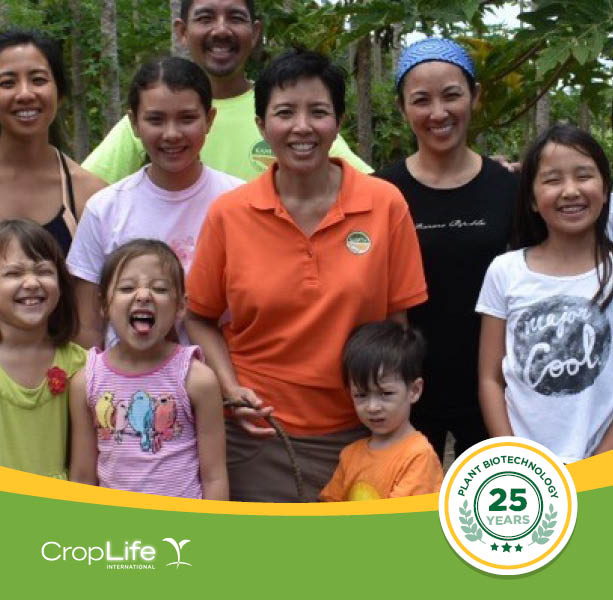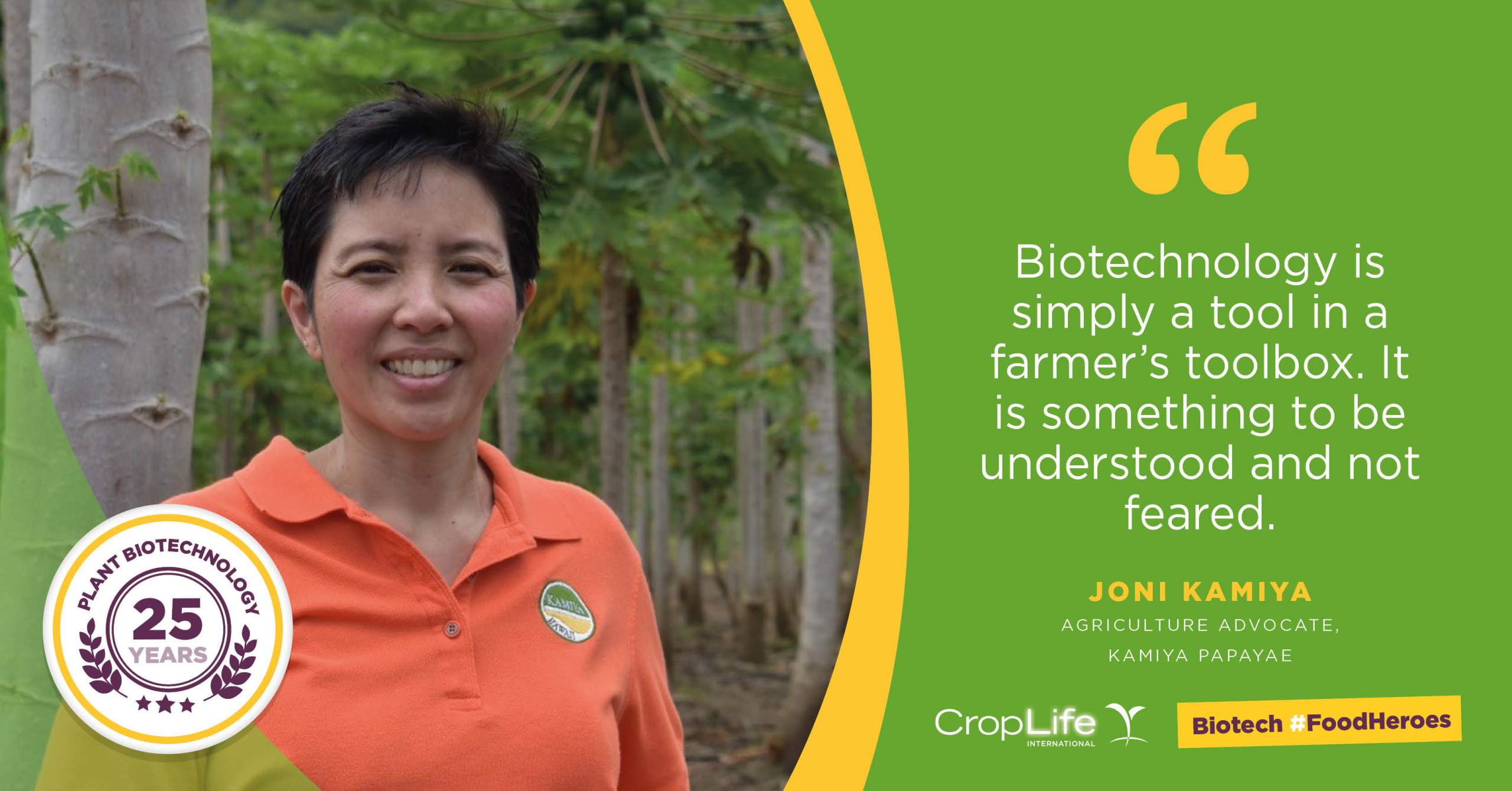
Kamiya Papaya

The luscious, orange-fleshed fruit they raise is the product of biotechnology — genetically engineered to resist the ringspot virus that nearly devastated commercial papaya production in the Islands.
“What biotech did for our farm may seem very small and insignificant, but it has allowed our family to produce a nutritious and delicious local fruit that people buy religiously,” says farm spokeswoman Joni Kamiya, noting that it’s been served to over a million people in the past 25 years. “It kept the small farmer farming and the community fed. It has the potential to do that for millions of other small farmers globally.”
Though Kamiya had wanted to take over the farm from her father, the rampant spread of the ringspot virus cast the future of the operation in doubt. Instead, she chose health care, but was able to assist the initial research for the biotech papaya project while pursuing her degree at the University of Hawaii. Her family later participated in field trials for the first GM papaya trees.
“Through that experience, I saw the potential of using the plant’s genetics to help make it less susceptible to disease and more productive,” Kamiya recalls. “It also helped me to become an advocate for the technology that I saw in action.”
Kamiya’s advocacy skills were honed during a fellowship with the Cornell Alliance for Science, where she was empowered as an effective science champion and networked with others striving to expand farmers’ access to biotechnology.
“After meeting many advocates from around the world, I had a better understanding as to why I needed to continue speaking out for science,” she says. “Biotechnology is a tool in the toolbox — something to be understood and not feared.”
